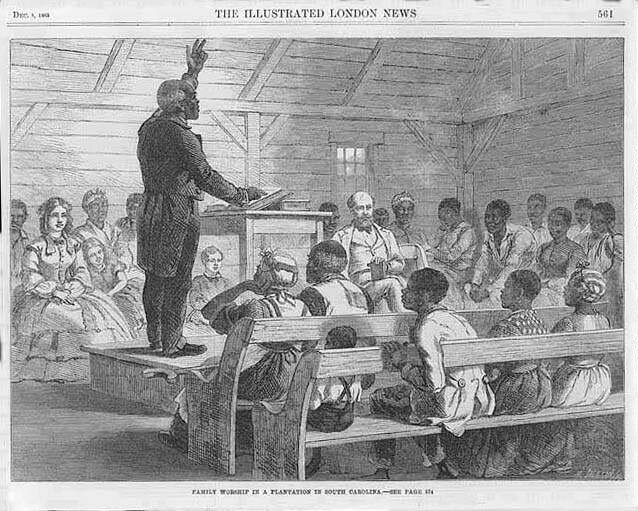Was Jesus Wealthy or Poor - and Why Does The Truth Matter?
The bible gives a lot of information about Jesus. There are clues on his status in life and intentional revelation of his views on wealth and poverty. This article will look at what the bible says about Jesus' position in society and how he relates to wealth and poverty.
Jesus' Wealth
Contrary to popular belief, Jesus wasn't a poor person. He lived in a wealthy city with a lot of influence. Jesus was born in a small but wealthy part of the Roman Empire. His parents lived in Nazareth, which was about 18 miles away from his birthplace in Bethlehem. Yet, he made a choice to live as a humble servant, even though he didn't have to.
The bible never says Jesus was poor. While many point to the fact that he was born in a manger, this does not mean Jesus was poor. The bible clearly states the reason Jesus was born in a manager - there was no room in the inn (Luke 2:7). Because Expedia.com declines my reservation does not mean I can't afford to stay at a hotel. Indeed the inns were full, but that does not mean Joseph, Jesus' father, could not afford a room! It means the opposite.
How poor could Joseph have been when he financed family travel to and from Egypt by caravan? Joseph certainly had enough money to start a carpentry business (Matthew 13:55). Joseph certainly had enough money to pay for the family holiday every year to Jerusalem for Passover (Luke 2:41) and put a room over Jesus' head for the rest of the year. So, at minimum, Jesus was not born poor, nor did he grow up impoverished. How many poor people do you know today who can afford an annual family vacation? We have no evidence that Joseph left Jesus, as the oldest, any inheritance.
According to ancient practice, as eldest, Jesus would have inherited Joseph's business, home, and wealth. Therefore, at a minimum, Jesus was as middle class as they come by antiquities standards.
Before launching his ministry, Jesus worked in his father's business daily. As carpenters, Joseph and Jesus would have created mainly farm tools (carts, plows, winnowing forks, and yokes), house parts (doors, frames, posts, and beams), furniture, and kitchen utensils.1 These items would have certainly been in high demand in those days.
Moreover, Joseph must have been a pretty good carpenter since everyone in the region identified Jesus as that carpenter's son (Matthew 13:55). That would be the equivalent of someone identifying Paris Hilton as one of the Hilton's!
Finally, Jesus' ministry was run with absolute economic veracity and stewardship - he even hired Judas as CFO (John 13:29). You don't need a person to manage your money if you're not raising substantial enough money.
Some Christians try to repaint Jesus into a poor person, but the biblical facts don't support that narrative. Best we can discern, Jesu was neither poor nor wealthy.
Jesus' Views On Poverty
I believe some Christians poverty-wash Jesus because they are confused over his life, lifestyle, and teachings on poverty and wealth. Jesus' teachings often challenge the wealthy to reconsider the wealth they gained from this world to use it for a higher purpose. I'll discuss this later.
For now, let us address Matthew 5:3, "Blessed are the poor in spirit, For theirs is the kingdom of heaven." This is one of the scriptures that have caused some Christians throughout history to sell everything they own, live in poverty, and serve the poor.
A.T. Robertson points out that the Greek word for poor used here (πτωχοι [ptōchoi]) is applied to the beggar Lazarus in Luke 16:20, 22 and it suggests spiritual destitution (from πτωσσω [ptōssō] to crouch, to cower) and financial poverty.[1]
Therefore, to be poor in spirit has everything to do with one being spiritually broken and hurt and in need of healing – which Jesus promises. I cringe when I hear this text used to poverty-wash Jesus and imply that poverty is aspirational. I presented the argument that was not poor. He may not have been as wealthy as the High Priest of his day, but he certainly was far from poor.
While Jesus often challenged the High Priest and Pharisees' understanding of the law, he lived out the law regarding how society should address poverty. This includes practices such as:
Making provisions for the poor, otherwise known as gleaning (Leviticus 19:9-10).
Offering the poor equal justice (Leviticus 19:15).
Society helping its poor (Leviticus 25:25-36).
Jesus didn't just preach to the wealthy. He listened to people who lived in deep poverty and heard their stories. For Jesus, poverty is not just an economic issue. It also includes social issues like discrimination, fear, hunger, homelessness, and isolation. Jesus challenges the wealthy of his day to consider those born into poverty or who are being discriminated against because they are Samaritan and Jew (Luke 10:30-37). Jesus had some interesting thoughts about how God sees this colossal problem. While he spoke up for the poor, he was no socialist. While he challenged the rich, Jesus was no capitalist. He came to save those in poverty and those with wealth.
Jesus' Views On Wealth
One of the most troublesome scriptures is found in Mark 10:25, "It is easier for a camel to go through the eye of a needle than for a rich man to enter the kingdom of God."
Many interpret this text as "IMPOSSIBLE FOR RICH PEOPLE TO GO TO HEAVEN." Here's the problem with that interpretation - if everyone is poor, whose tithes and offerings will finance the Kingdom expansion? What do we make of Joseph of Arimathea? The New Testament boss lady businesswoman, Lydia's? The wealthy prophets in the Old Testament like Isaiah and Amos? The leaders like Abraham, Isaac, and David? In other words, in the interpretation of Mark 10:25 is that no rich people on earth can or will make it into heaven, we'd have to remove a lot of wealthy people from the text that we know most certainly received their heavenly reward!
Wealth does not doom a person to hell.
People who interpret scripture this narrowly often miss the broader context of the verse found within the passage, chapter, or book. In the very next verse, Mark 10:26, Jesus clarifies his wealth doctrine. Jesus does not say it is hard or impossible for people of wealth to go to heaven. He looks around and asks the audience, 'how hard is it?' For Jesus, wealth is not the issue but trusting in one's wealth more than God is the real issue.
Jesus has no problem with wealth or gain. Jesus is concerned about those persons who make the pursuit of wealth their sole focus in life. In other words, Jesus is speaking against wealth without a higher purpose.
The disciples' response is even more startling than Jesus' question. They ask, 'who then can be saved?' (Verse 26). I guess they wanted wealth as well as a ministry! Jesus responds with more profound revelations that are often overlooked in the conversation on wealth and poverty in the bible:
Earthly wealth and success does not guarantee a person entrance to heaven;
Earthly wealth is not exclusively a sign of God's favor and pleasure in a person;
Only with God can a person have wealth and inherit the kingdom!
I'm glad there is room in heaven for the wealthy people in the bible and forever. By the time we get to Mark 10:30, Jesus affirms a list of material blessings one could have in this lifetime plus the bonus of eternal life (verse 30).
Why Does The Truth Matter?
The truth always matters, especially when it comes to the Bible. The Bible provides hope. If there is the only room in heaven for those in poverty, then there is no hope for wealthy people – not even those who pursue higher-purpose wealth.
Historically, some pastors and theologians have implied in their teachings that poverty might just be Black peoples’ lot. That they ought to live a humble and meek life and not pursue things of the world (success and wealth). It was implied that their poverty might not be as dire as they made it out to be since their heart was right with God. Most Blacks who have pursued wealth in these circles have been criticized for their aspirations. Meanwhile, often times White congegrants have been celebrated by the church for their worldly success and wealth.
Jesus says that it is the truth that makes us free (John 8:32).
Black people need to be freed from poverty theology and released into the true heart of God that wealth is not inherently wrong, poverty can be systematic, and wealthy people should not forget about the poverty problem or poor people. There is the pursuit of higher-purpose wealth.
While I would not necessarily call Jesus a capitalist, his cultural background as a Jew and his teachings make me believe he embraced the person with higher purpose wealth. No, wealth should not be as a focal point of our prayers as provisions (Matthew 6:11).
Wealth, according to Jesus, can be used for a higher purpose.
Capitalism certainly encourages greed, but it also provides the best means by which the poor can create wealth and improve their situation. By this measure, the Apostle Paul probably would be labeled a capitalist today for his teachings to the poor in Thessalonica (2 Thess 3:6-10)!
[1] Robertson, A. T. (1933). Word Pictures in the New Testament (Mt 5:3). Nashville, TN: Broadman Press.
Quick Clicks








